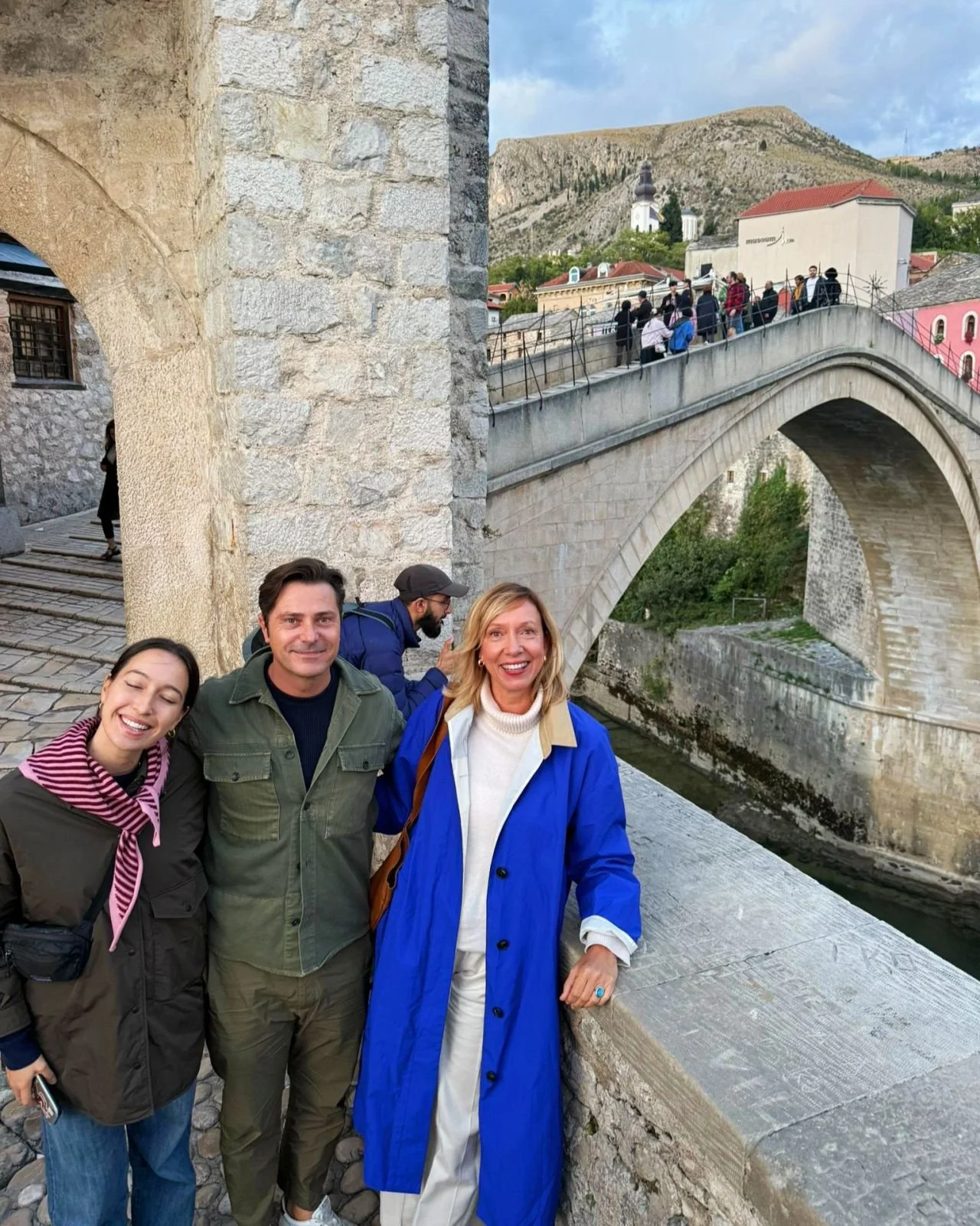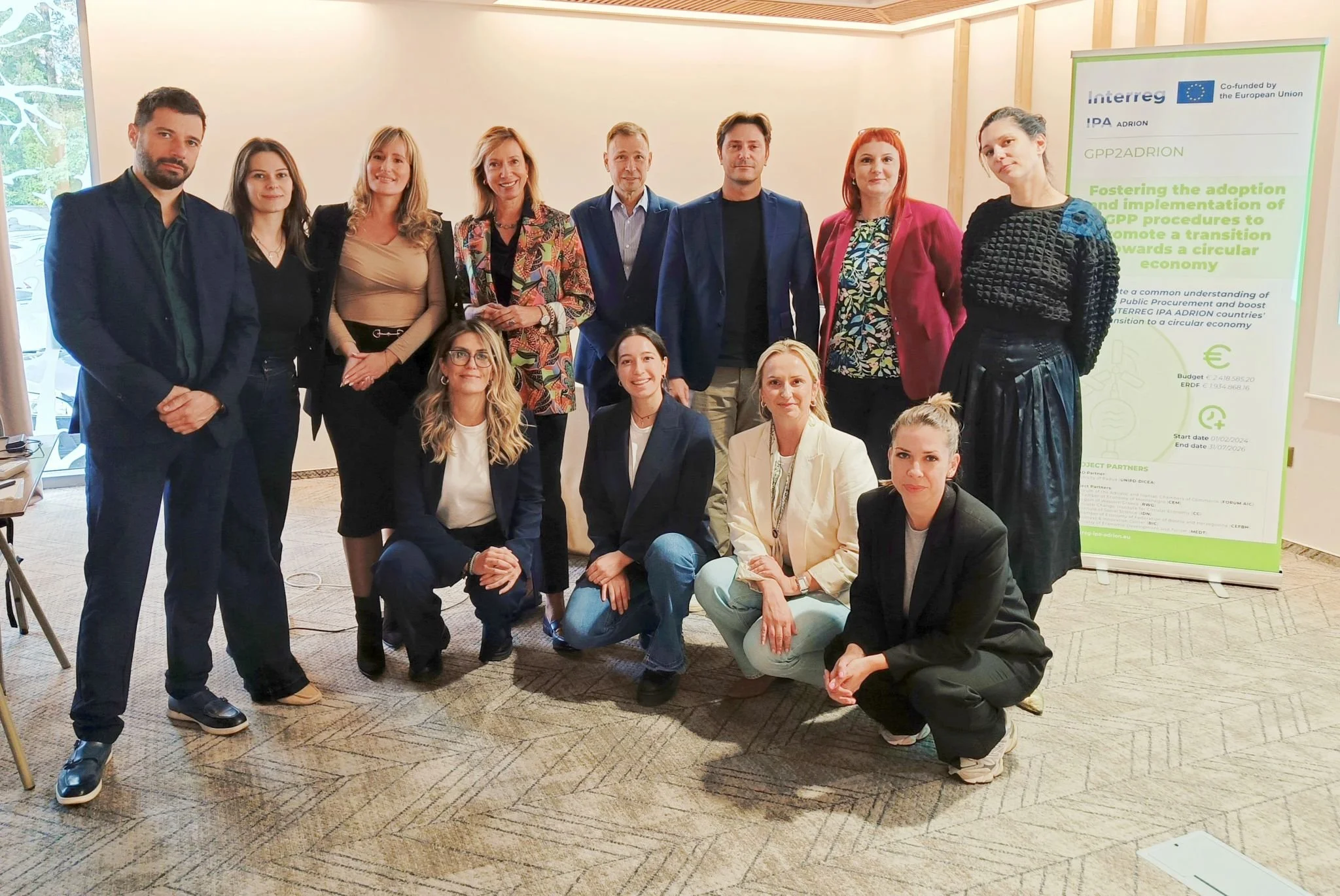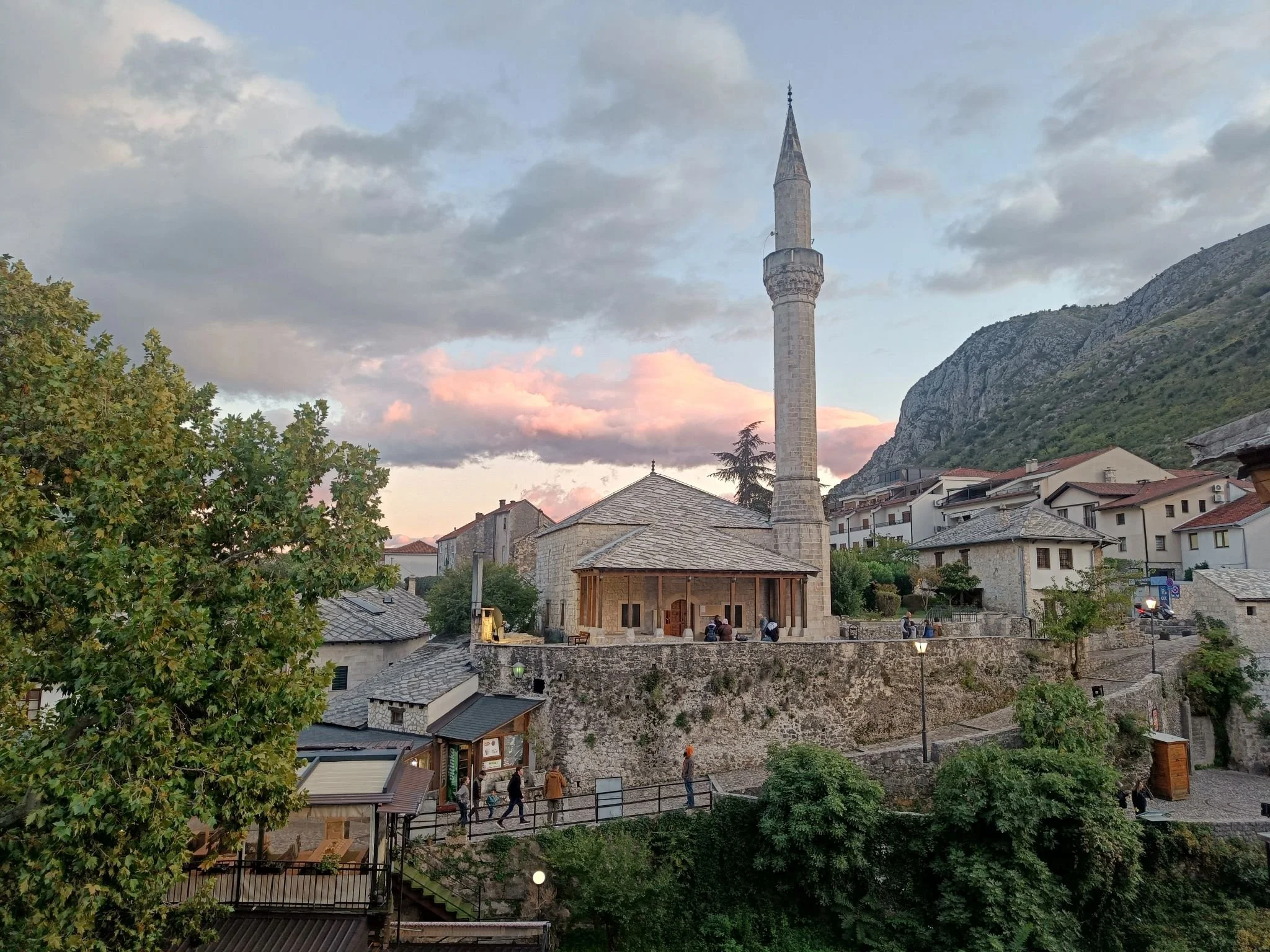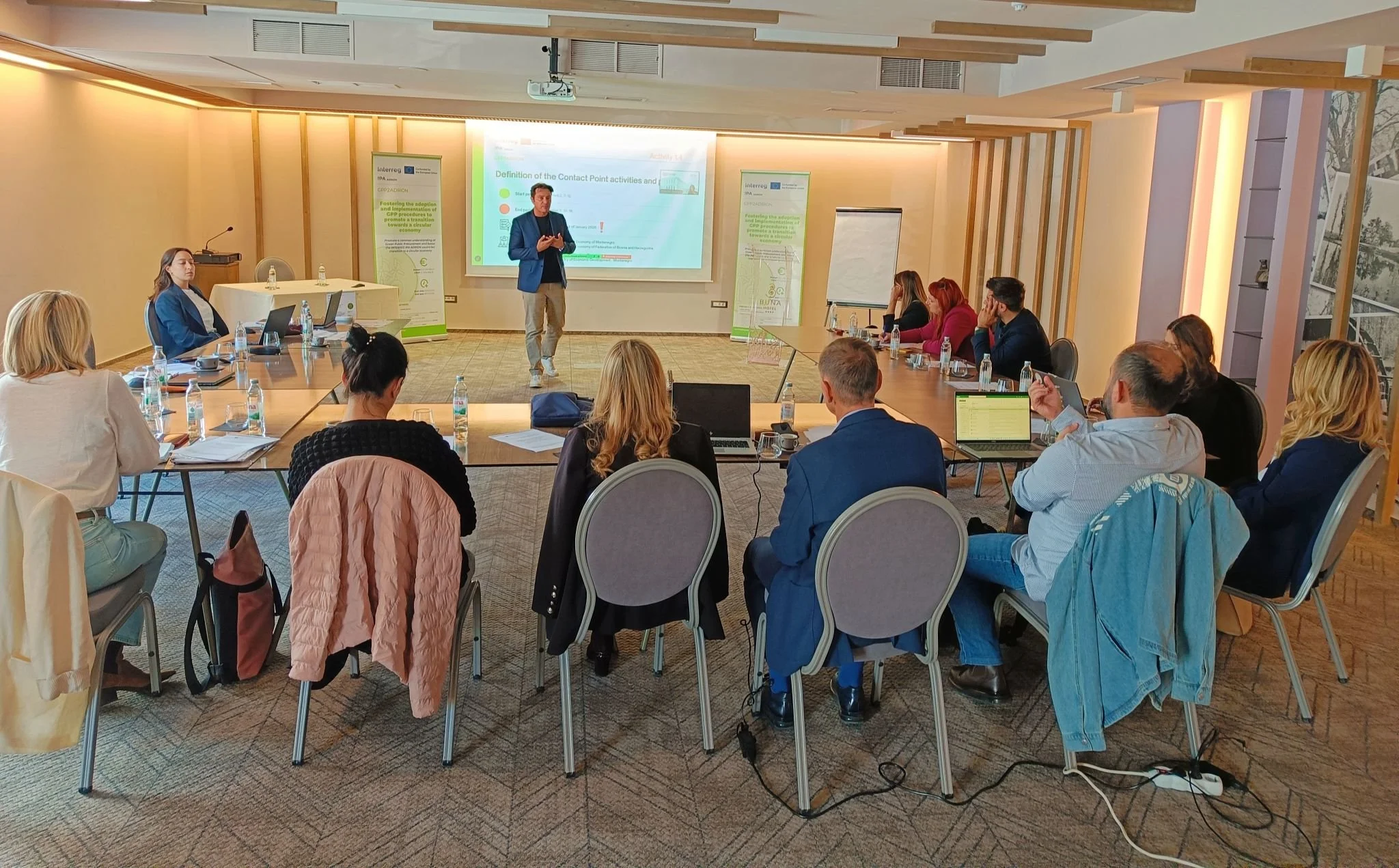GPP2ADRION Partners Meet in Mostar: Advancing Green and Circular Public Procurement Across the Adriatic–Ionian Region
On 7 October 2025, the third in-person meeting of the GPP2ADRION project – “Fostering the Adoption and Implementation of GPP Procedures to Promote a Transition Towards a Circular Economy” – took place in Mostar, Bosnia and Herzegovina, hosted by the Chamber of Economy of the Federation of BiH. The meeting marked an important milestone, coinciding with the completion of the project’s first year, dedicated to assessing the current state of Green Public Procurement (GPP) and identifying gaps and opportunities for advancing circular procurement across the Adriatic–Ionian region.
As the leader of Work Package 1, Circular Change played a central role in presenting the results achieved so far — including the Benchmark and Gap Analyses, and the development of a common stakeholder engagement model — and in facilitating discussions on upcoming activities. “The purpose of this mission is to build upon local just transition strategies by identifying concrete measures that strengthen circular business models and foster international collaboration. Through the exchange of good practices, we aim to empower regions as hubs of knowledge, innovation, and sustainable transition,” said Ladeja Godina Košir, Founder and Executive Director of Circular Change and Co-Chair of the European Circular Economy Stakeholder Platform (ECESP).
The sessions in Mostar focused on the preparation of two key deliverables: the Capacity Building Package, a 20-hour training course aimed at strengthening the competencies of public officials in GPP, and the National Contact Points on GPP, which will serve as permanent hubs for guidance, training, and support. Partners emphasized the importance of practical, context-specific training materials and the integration of the Contact Points within existing institutional frameworks such as Chambers of Commerce to ensure long-term sustainability.
The meeting also served as a forum for collective learning and regional exchange. Partners from Italy, Slovenia, Montenegro, Bosnia and Herzegovina, Serbia, Greece, and North Macedonia shared their perspectives on policy alignment, capacity building, and stakeholder engagement. A lively workshop, led by Prof. Alessandro Manzardo and Matilde Cavalli from the University of Padova, encouraged partners to co-design solutions for the upcoming implementation phase and to explore synergies between national initiatives.
By setting a shared vision and concrete next steps, the Mostar meeting reaffirmed the project’s commitment to transforming knowledge into action — paving the way towards a more circular, transparent, and sustainable procurement system in the Adriatic–Ionian region.




